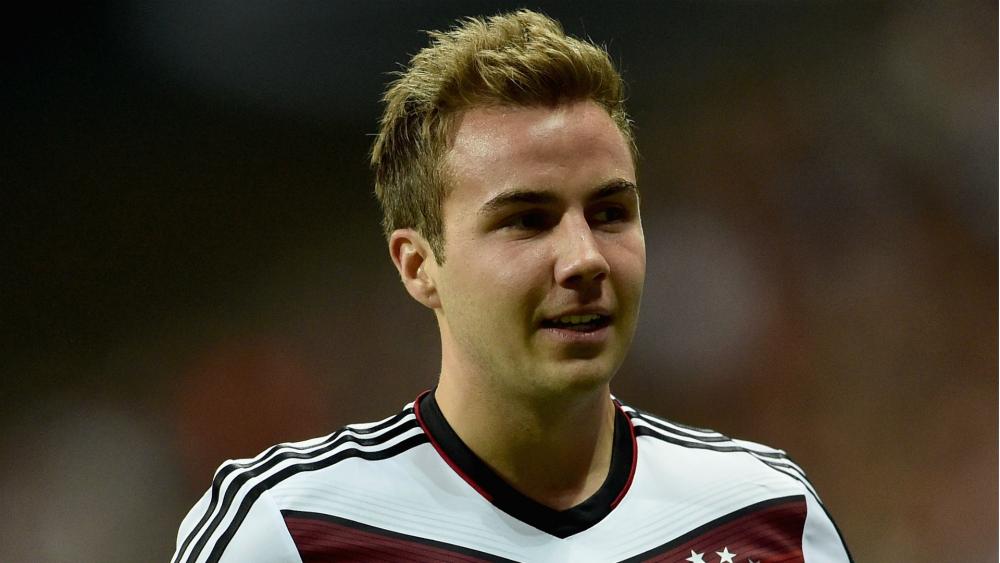How Mourinho’s peculiar relationship with playmakers is costing Manchester United dearly
The Old Trafford manager must move with the times when it comes to utilising playmakers as his side is being left behind, argues Alex Hess
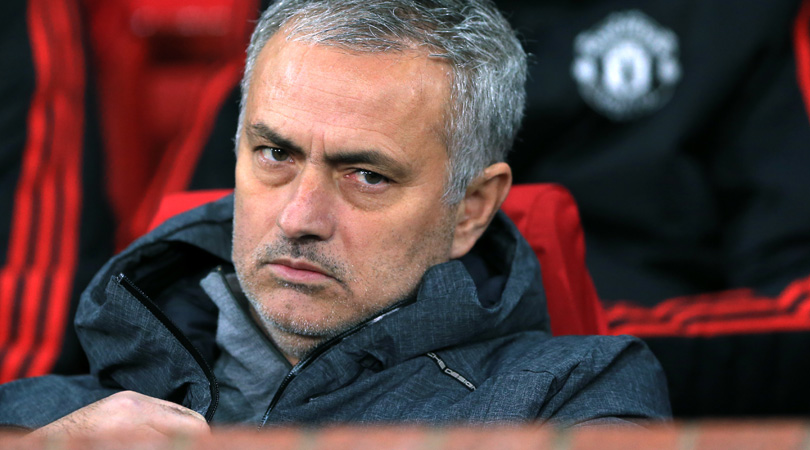
Out of favour, out of the picture and utterly alone, Henrikh Mkhitaryan is in good company. The future may not look bright for the Armenian, who has featured in Manchester United’s matchday squad just once since the defeat at Chelsea on November 5, but he can console himself with the fact that he’s hardly the first high-pedigree playmaker to have felt the full force of a Jose Mourinho banishment.
I lost my joy
The experience is not even new to Mkhitaryan himself, who spent two-and-a-half months of last season in a similar state of exile – again straight after having started in a high-profile loss, that time at home to Manchester City. His story is one that Juan Mata – now consigned by Mourinho to a bit-part role at United having been cast out by him altogether at Chelsea – will be well-acquainted with.
Likewise Kevin De Bruyne, who was also denied a look-in at Stamford Bridge by the Portuguese boss, at one point called into the manager’s office alongside his fellow attacking midfielders for a lecture in how their performances were putting him to shame. “I lost my joy,” De Bruyne recalled.
See also Mesut Ozil – subject to a similarly scathing denunciation by Mourinho at Real Madrid (“You’re such a coward. What do you want? To creep under the beautiful, warm shower? Shampoo your hair?”) and Joe Cole, who was effectively Mourinho’s human piñata a decade or so ago at Chelsea. In the Portuguese's second spell in west London, Eden Hazard was another to bear the brunt after the Blues' Champions League semi-final elimination against Atletico Madrid. "Eden is not the kind of player to sacrifice himself for the team," Mourinho fumed post-match. "He is the kind of player that is not so mentally ready to look back to his left-back and to leave his life for him. The perfect team at the top level cannot make these kinds of mistakes."
All could also testify to the United manager’s tough love approach when managing his creative talents.
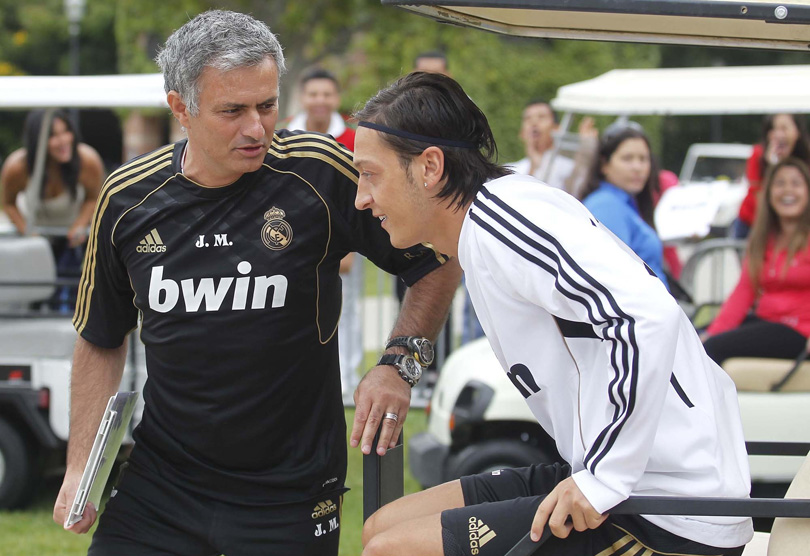
Even Kaka, a Ballon d’Or winner acquired by Madrid for world-record fee, was not immune to the fate currently being suffered by Mkhitaryan and Mata once Mourinho had breezed into the Bernabeu.
Paying the price
Get FourFourTwo Newsletter
The best features, fun and footballing quizzes, straight to your inbox every week.
Watching United flounder against Manchester City on Sunday as the Stretford End pleaded with their side to attack, it was hard to avoid the thought that Mourinho’s sidelining of United’s two playmakers was more to his team’s cost than its advantage. At a club that prides itself on going for broke in front of their home crowd, this was less a means to an end and more an end to the means.
As Mata looked on from the bench and Mkhitaryan from the stands, what stood out was not just how desperately uninterested United seemed in producing a moment of match-turning invention
As Mata looked on from the bench and Mkhitaryan from the stands, what stood out was not just how desperately uninterested United seemed in producing a moment of match-turning invention, but also how City’s squadron of creators offered far more than just capricious on-the-ball creativity.
De Bruyne, Raheem Sterling and Ilkay Gundogan all scuttled and scrapped in a manner that was about as far from the archetypal ‘luxury player’ as is possible. Meanwhile David Silva, perhaps the definitive pocket-sized playmaker, could be seen charging around channelling his inner Norman Hunter, hurling himself with abandon at any opposition player within reach.
If Mourinho’s issue with creators is that they present an either/or conundrum between attack and defence, ingenuity and diligence, then Silva and his troops surely gave lie to that idea on Sunday.
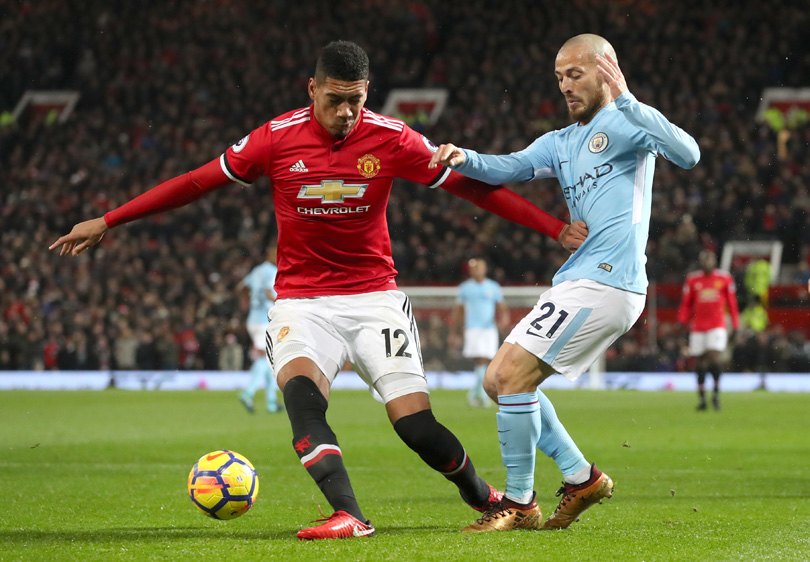
The common conception regarding Mourinho and playmakers is that he simply doesn’t trust them. But a quick glance over his career shows it’s not quite as simple as that. In actual fact, this United side is the outlier in its lack of a jinky creative figure.
At Porto it was Deco who played that role, and was sufficiently liberated to carve himself a reputation among the world’s elite. At Chelsea, in a canny bit of tactical innovation, Eidur Gudjohnsen was moved back into the role of advanced midfield creator. During Mourinho’s time with Inter, Wesley Sneijder was the one player granted the freedom to do as he pleased.
At Madrid, it was Ozil who supplied the ammo with a consistency unmatched by him since. Lastly, Mourinho’s second stint at Chelsea only properly took off once Cesc Fabregas was signed and given free rein to perform his puppeteering act at the tip of a midfield three.
Mourinho’s mercurial men
It might seem incongruous that Deco, Gudjohnsen, Sneijder, Ozil and Fabregas – a quintet about as mercurial as you could imagine – all produced the best football of their careers under the supposed creativity sponge that is Mourinho. Yet it’s arguably true. At the same time, though, the suspicion remains – and with good reason – that he is a manager who fails to make good use of his creative resources.
Christian Eriksen ended the campaign having run of most of any player in the division
Perhaps the key distinction between Mourinho and the generation of managers that followed him in the late noughties – Guardiola, Klopp, Pochettino, Conte – is the way they perceive their creative talents. Those coaches don’t simply demand hard work from their attacking midfielders: they demand more from that position than any other.
Adam Lallana, for instance, twice broke the Premier League record last season for the most ground covered in a single game. Christian Eriksen ended the campaign having run the most of any player in the division, with Dele Alli the 10th-most. Crucially, all three enjoyed the most productive seasons of their career in terms of goals and assists. A similar story could be gleaned from Silva and his colleagues on Sunday.
Mourinho, on the other hand, appears to see the playmaker as distinct from the midfield workhorse; as a necessary indulgence. The five who have thrived under him have largely done so because they were granted an exclusive, unshackled role within the side, with defensive duties kept to a minimum.
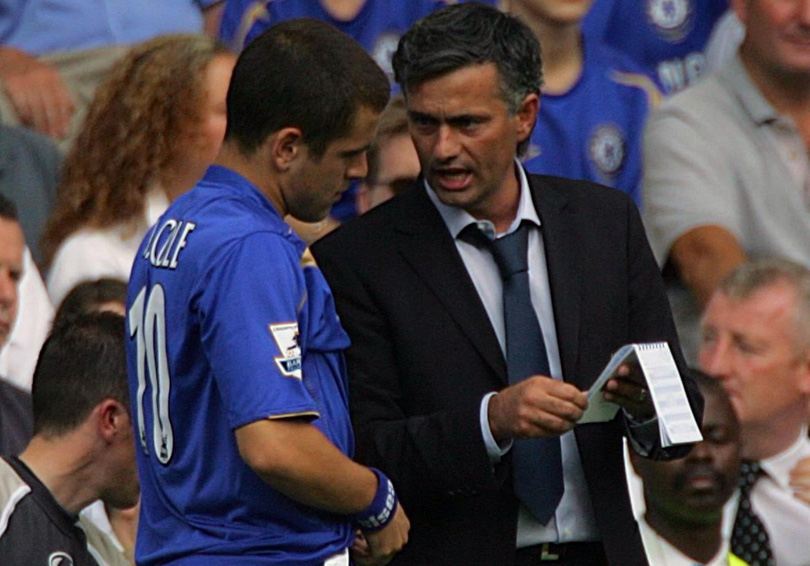
On the occasions that his creators have been forced to put in the hard yards, it has been at the expense of their attacking output. Willian was signed by Chelsea as an elusive chance-maker, but was swiftly repurposed into a assiduous wide shuttle-runner (his 17 assists in his final full season at Shakhtar compare with 19 in his four-and-a-half season at Stamford Bridge).
Joe Cole was similarly revamped – and to good, if short-lived effect – from visionary central conductor to industrious wideman under the Portuguese manager’s treat-‘em-mean tutelage. And as hard as it may be to imagine now, Ander Herrera made his name at Athletic Bilbao as a fleet-footed playmaker before finding his niche at Old Trafford as Mourinho’s terrier-in-chief; the on-field Rui Faria.
Mourinho is often painted as a man who puts winning before all other principles, but Sunday’s surrender was the act of a man putting his principles before winning.

Surely a loosening of the shackles – a start for Mata, an outing for Mkhitaryan – represented the best chance of a result against a depleted City defence, not to mention the best chance of brownie points from an expectant Old Trafford crowd. Instead it was the diligent-but-limited Jesse Lingard granted playmaking duties, to predictably negligible effect.
Does Mourinho need to move with the times; to stop seeing graft and craft as separate, incompatible vocations? He would doubtless argue not and his medal collection, for the moment at least, backs him up.
However, the league table – this season’s and last’s – suggests otherwise, and as dogmatic as Mourinho is, he might do well to look back at his gilded predecessor and take note of Alex Ferguson’s greatest asset: his adherence to absolutely no dogma other than the need to win.
